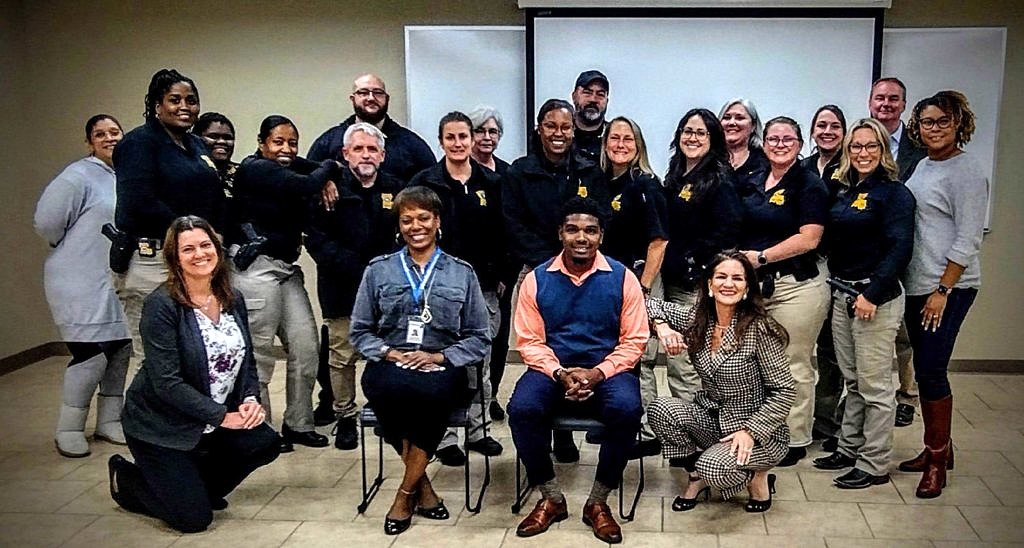
We all have a role to play in supporting individuals reentering the community.” — Department of Public Safety & Corrections Secretary James M. Le Blanc
Five years after the passage of comprehensive reforms as part of Louisiana’s Justice Reinvestment Initiative (JRI), stakeholders remain committed as ever to improving the state’s criminal justice system.
Nowhere is this more evident than the efforts of Louisiana Department of Public Safety & Corrections (DPS&C) to implement evidence-based trainings. Its vision: give all stakeholders participating in the reentry process—not just front-line staff—tools they need to encourage positive behavior change in individuals who are incarcerated.
In 2017, DPS&C initiated a series of skills trainings for probation officers and transition specialists statewide, conducted by the Crime and Justice Institute (CJI) as part of the Justice Reinvestment Initiative and funded through the Bureau of Justice Assistance (BJA) within the Department of Justice’s Office of Justice Programs. CJI’s Core Correctional Practices and Principles of Effective Intervention teach staff research-driven approaches to use in day-to-day interactions that increase the effectiveness of rehabilitative services. Trainings also provide the opportunity to practice these skills and receive feedback and coaching.
While other states typically limit trainings to corrections staff, DPS&C Secretary James M. Le Blanc had a novel idea: instead of restricting trainings to staff, offer the same evidence-based tools to external partners.
CJI’s training will enable me to better direct care for my clients who are pre-release or formerly incarcerated.” — Shounda Edward, career navigation manager at Goodwill Industries of Southeastern Louisiana
DPS&C has long collaborated with community organizations to provide high-quality reentry supports for people exiting incarceration, and these trainings would enhance their existing partnerships and deepen the department’s work. The idea was for all staff and stakeholders to speak the same language—and thereby work better together.
To make this vision a reality, DPS&C opened CJI trainings to staff at community partner organizations in 2022. These staff, including case managers, employment specialists, and treatment providers, will learn alongside DPS&C staff through the summer. Community partners participating in trainings include Goodwill Industries of Southeastern Louisiana, Reentry Mediation Institute of Louisiana, The Level Up Camp, and Socialworx.
Significantly, training efforts will not end when CJI’s technical assistance ends. CJI employs a train-the-trainer model, meaning that individuals who are trained learned to train others. Each cohort of trainees is tasked with training other cohorts, with support and “tune-ups” from CJI as needed. This first cohort of trainees will become certified trainers who will lead trainings for new groups of community partners.
Community partner trainings are made possible through a BJA grant supporting reentry efforts, called the Second Chance Act Grant.
“CJI’s training will enable me to better direct care for my clients who are pre-release or formerly incarcerated,” said Shounda Edward, Career Navigation Manager at Goodwill Industries of Southeastern Louisiana. “The skills I learned will help to enhance the work I am already doing to establish rapport and build trust with clients — supporting them in a way that encourages self-sufficiency and accountability.”
Expanding the audience for these trainings means that more stakeholders are equipped with skills to promote long-term behavior change. It also helps to generate conversation among direct-care staff and community providers, two groups that are essential in reentry efforts.
“We all have a role to play in supporting individuals reentering the community,” said DPS&C Secretary James M. Le Blanc. “These trainings will enable DPS&C to collaborate more effectively with our community partners and work to ensure that individuals do not return to the justice system once they have exited.”